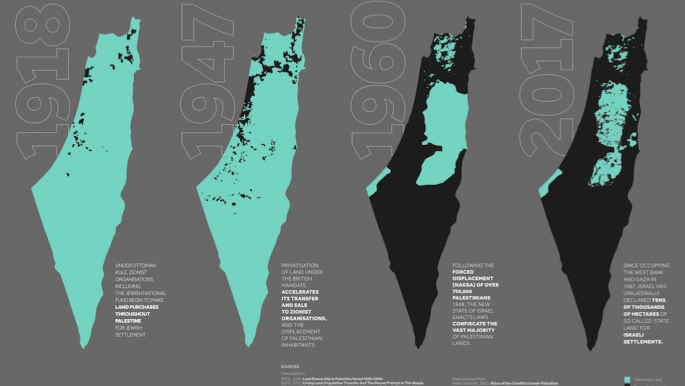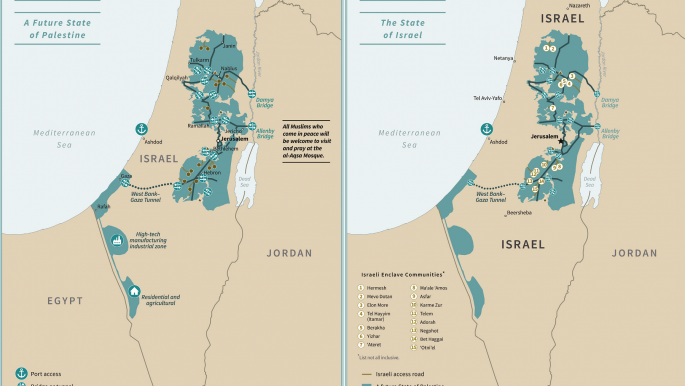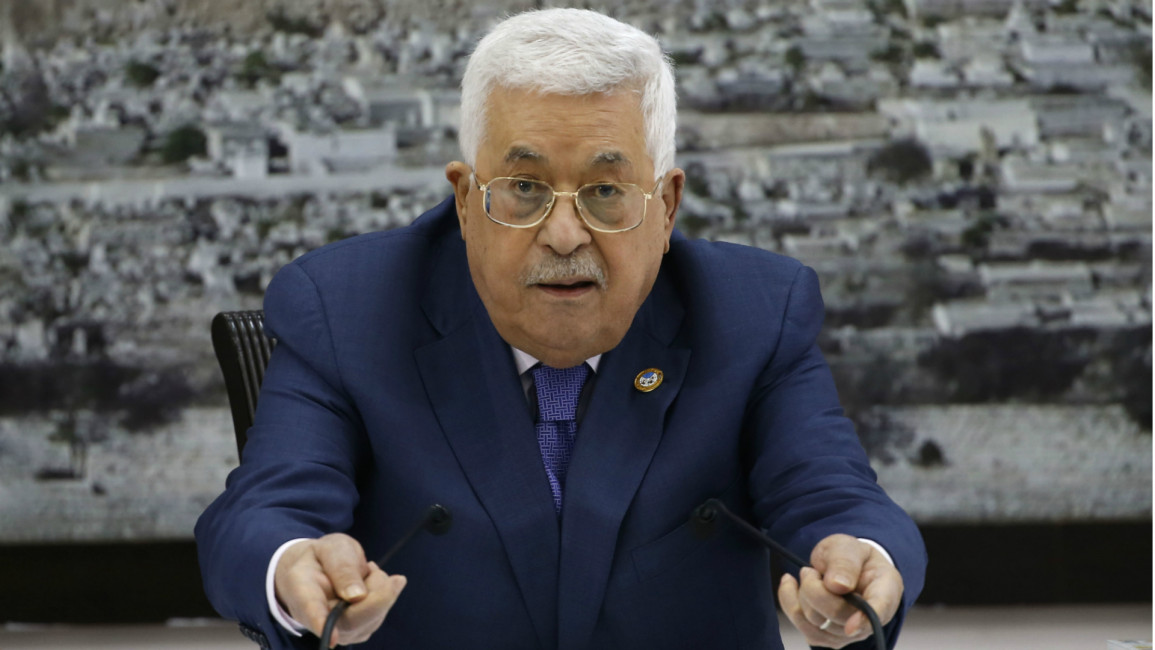Abbas sends Netanyahu message slamming Trump's sham 'peace' plan
The Palestinian delegation, headed by Civil Affairs Minister Hussein al-Sheikh, met with Israeli Finance Minister Moshe Kahlon to express their anger at President Trump's 'Deal of the Century' peace plan, Channel 12 reported.
The delegation reportedly gave Kahlon a handwritten Arabic note from Abbas to give to Netanyahu.
"The plan is an American and Israeli disavowal of the Oslo accords, and so the Palestinian Authority now sees itself as free to disregard the agreements with Israel, including security cooperation," Channel 12 quoted the note as saying.
Al-Sheikh told Kahlon that since they consider the so-called 'Deal of the Century' to invalidate the Oslo peace accords, they might break their commitments under the accords.
Palestinians have rejected Trump's peace proposals, the long-awaited details of which he unveiled Tuesday at a White House press conference with Prime Minister Netanyahu at his side.
Last week, the top PLO's top negotiator,Saeb Erekat, slammed the plan “the fraud of the century.”
Despite their vehement oppposition to the deal, the Palestinians may struggle to push back if Israel launches the plan on the ground by annexing settlements and keys parts of the West Bank.
 |
|
| [Click to enlarge] |
Trump's initiative grants the Jewish state full control of Jerusalem and allows it to annex the Jordan Valley - a strategic area of the West Bank - as well as the settlements that dot the Palestinian territory.
In exchange, the Palestinians are being offered a form of statehood in what remains of the West Bank and Gaza, as well as the prospect of billions of dollars in aid and investment.
At that time a draft resolution will be submitted to the council, his ambassador to the body Riyad Mansour told reporters, without specifying a date for the visit. Palestinians across the political spectrum have condemned the plan.
In a Washington Post op-ed, chief Palestinian negotiator Saeb Erekat called on other countries to take the lead in negotiating peace.
But so far the international reaction has been muted, with few indications of serious outside pressure on the US and Israel. A number of Gulf and Western states, such as Saudi Arabia, the United Arab Emirates and the United Kingdom, have voiced support for the plan.
Israeli officials have said they plan to begin the annexation as soon as possible, maybe before elections scheduled for March 2.
'Popular response'
The Palestinians are split between Abbas' West Bank-based government and the Islamists of Hamas, which controls the Gaza Strip.
|
The two have been at loggerheads for more than a decade, though shared opposition to Trump's deal allowed them to hold a rare meeting on Tuesday.
Regionally, Arab states in the Gulf have moved closer to the Jewish state amid shared hostility to Iran.
In a speech Tuesday evening, President Abbas said he had heard "promising (international) reactions against the Trump plan. We will build on them".
But in reality Saudi Arabia and other regional players said they would study the proposals, withholding immediate criticism.
The United Arab Emirates went further by calling the plan an "important starting point" for peace talks.
The European Union is also split over how tough to respond if Israel goes ahead with annexation, diplomats said.
In a meeting Wednesday, Erekat met EU envoys and called on them to recognise the state of Palestine, a long-standing demand, two diplomats said.
But consensus remains elusive, the diplomats said, with countries such as Hungary opposing measures favoured by Sweden, Ireland and others.
"There is an EU position we have expressed previously stressing opposition to annexation and consequences if they do so," one European diplomat said.
"But it is fair to say there is no consensus on what those consequences could be."
In a neutral reaction, Egypt, whose capital hosts the Arab League, has called on Israel and the Palestinians "to undertake a careful and thorough examination of the US vision to achieve peace".
Abbas is expected to travel to Cairo on Wednesday for an Arab League meeting before visiting other countries to try to rally support.
Read more: Kushner recommends 'foolish' Palestinians take 'cold shower' before rejecting sham peace plan
Abbas will request "support and backing for the Palestinian position to face the (US and Israeli) pressure," Palestinian Foreign Minister Riyad al-Maliki told AFP.
He said they would take any annexation to the International Criminal Court.
Abbas has called for a "popular" movement to oppose Trump's plan, but protests on Tuesday night were relatively small.
On Wednesday a few hundred people gathered in the Jordan Valley, a key strategic area the plan gives Israel the right to annex.
Abbas, who has been boycotting the Trump administration since 2017 over its unbridled pro-Israel stance, may try to stumble through to year's end hoping Trump loses November elections, said Ofer Zalzberg of the International Crisis Group.
"If Israel goes ahead with annexation, though, they will seek to gather Arab opposition, could reduce security coordination with Israel so protests risk turning violent," Zalzberg said.
Gaza escalation?
In Gaza, a few thousand demonstrators gathered Tuesday to oppose the plan.
Hamas has fought three wars with Israel since 2008 and is considered a terrorist organisation by the United States and other Western powers.
But analysts say the group has little desire for another devastating conflict with Israel.
"Hamas and Islamic Jihad will keep away from it for now and maintain joint work with president Abbas," said Jamal al-Fadhi, a politics professor in Gaza.
 |



